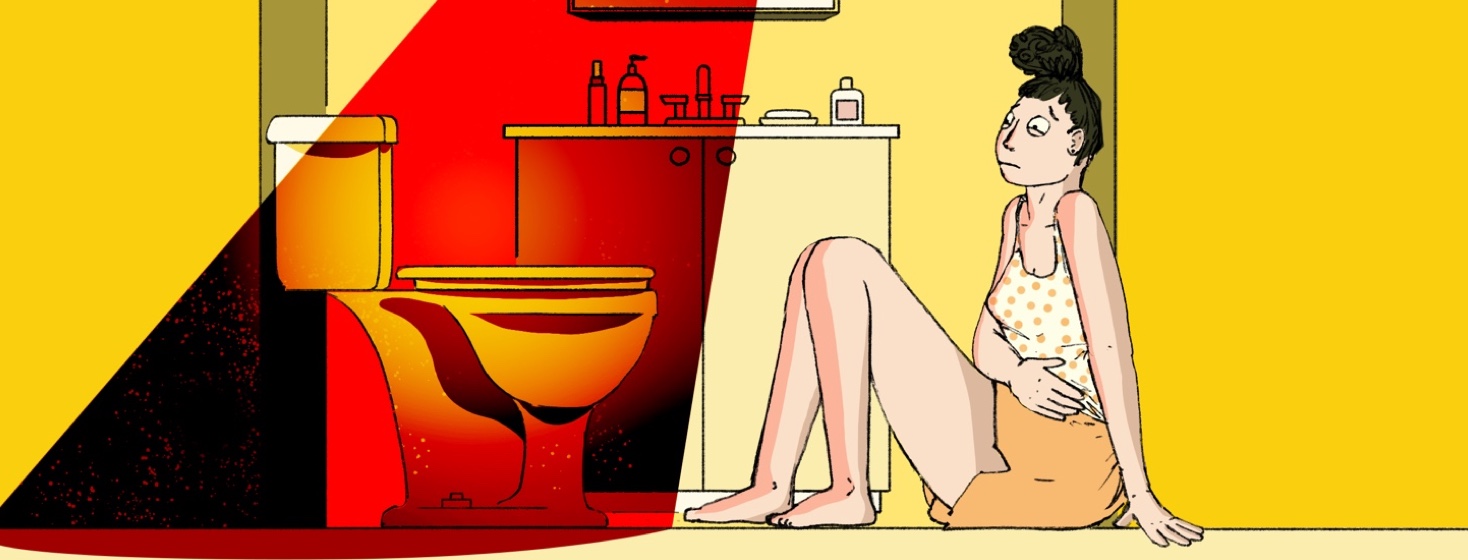Hemorrhoids Caused by Endometriosis
You have probably heard of hemorrhoids. You may know someone who has experienced hemorrhoids, or you may have experienced them yourself. You may have heard them called piles, which is another name for the same condition.1
Hemorrhoids are a common issue for many people. The National Institute of Diabetes and Digestive and Kidney Diseases estimates that 1 in 20 people in the United States are affected by hemorrhoids. There are estimates that about half the people in the United States will have had hemorrhoids by the age of 50.1,2
What are hemorrhoids?
Hemorrhoids are caused when the veins in and around your lower rectum and anus become swollen and inflamed. Many different factors can cause this. People who are regularly constipated or strain to have a bowel movement are at risk for hemorrhoids. Unfortunately, people who regularly have diarrhea are also at risk for hemorrhoids. Other risk factors include:1,2
- Pregnancy
- Age
- Family history
- Lifting heavy objects regularly
All of these factors put extra pressure on the veins in the rectum and anus. This can lead to hemorrhoids.2 Hemorrhoids can be internal or external. Internal hemorrhoids occur inside the lining of the rectum and in the lower anus. External hemorrhoids are usually under the skin around the anus. Both can be painful and irritating.1
So, what does this have to do with endometriosis? You will probably notice that endometriosis was not mentioned in any of the risk factors for hemorrhoids. People who have endometriosis do get hemorrhoids. There may be a few different reasons this can happen.
Endometriosis and the bowel
People with endometriosis often experience bowel symptoms. This sometimes happens because endometriosis is directly on their bowel. Bowel endometriosis can cause inflammation. It may require surgery to remove the endometriosis. Bowel endometriosis only occurs in about 10 to 15 percent of people with endometriosis.3
Even those without bowel endometriosis often have bowel symptoms. Doctors estimate that at least 60 percent of people with endometriosis have at least 1 bowel symptom. The most common bowel symptom is diarrhea. Constipation is another common symptom. Both of these are risk factors for hemorrhoids.3
Endometriosis can release hormones into the abdominal cavity. These hormones can cause diarrhea and cramping in the bowels. The body may also release proteins in response to inflammation caused by endometriosis. These proteins can affect the bowel and cause bowel symptoms. These symptoms can lead to hemorrhoids in people who have endometriosis.3
Endometriosis and the rectum
Very rarely, people with endometriosis may experience the condition in their rectum. This can lead to hemorrhoids.4
In 1 study, doctors described a patient who came to the office to be examined for a hemorrhoid. When the doctors examined her hemorrhoid, they found a lump. This lump was endometriosis. The doctors did not know that the patient had endometriosis until they found the rectal lump. Doctors had mistaken her endometriosis for hemorrhoids because of where the disease presented.4
What if I have hemorrhoids and endometriosis?
If you have hemorrhoids and endometriosis, you should talk to your healthcare team about your symptoms. Your gynecologist may send you to a gastrointestinal specialist for the care of your hemorrhoids. They may want to find out if you have endometriosis in your bowel as well.
Your hemorrhoids will be treated differently depending on how severe they are. Mild hemorrhoids may be treated with ice, medicine, and soaking. More severe hemorrhoids may require surgery. Your healthcare team may work with you to change your diet and lifestyle to prevent future hemorrhoids. They may also prescribe medicines to help prevent future hemorrhoids.2
Your healthcare team is your best source of information for your specific situation. Be sure to discuss any concerns you have about your endometriosis diagnosis and how it may affect hemorrhoids.

Join the conversation